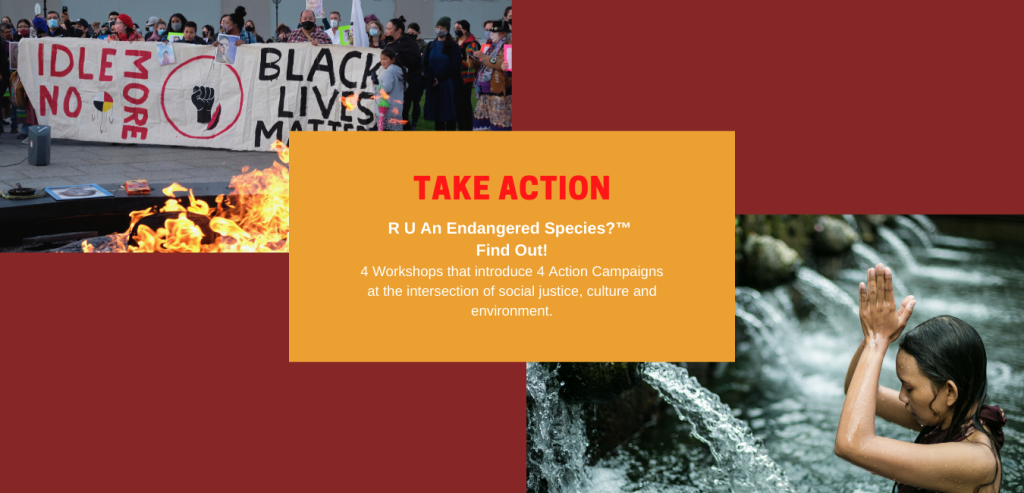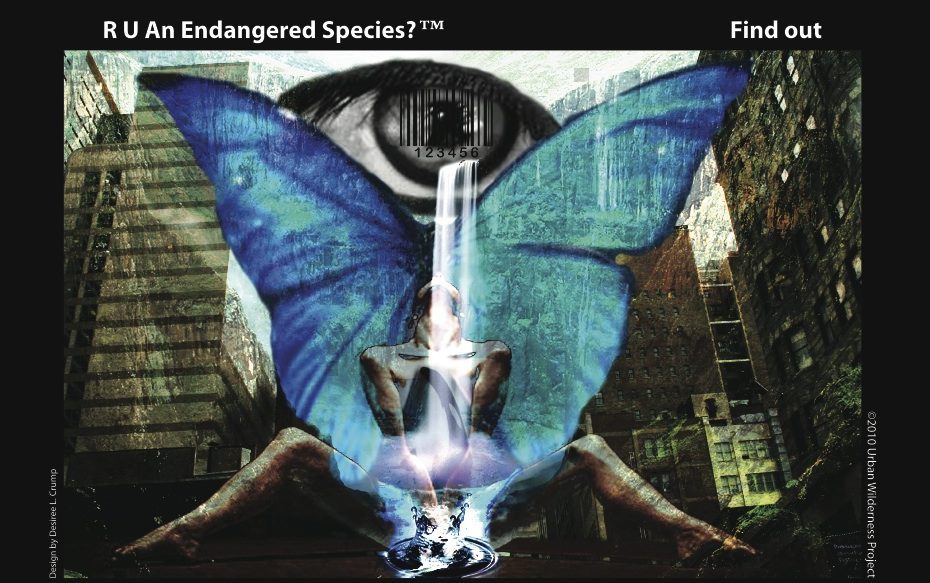
R U An Endangered Species?™ Find Out!
4 Workshops that introduce 4 Action Campaigns at the intersection of social justice, culture and environment.
Attend or host a workshop. Learn what you can do to protect our social and natural eco-systems by joining a campaign to save human lives.
The 4 Workshops
CAMPAIGN ONE | CAMPAIGN TWO | CAMPAIGN THREE | CAMPAIGN FOUR
About R U An Endangered Species?™
What we know
That Dr. Bullard along with others has proven that Environmental Racism is real. Communities with people of Native, African, Latino and Asian descent have a disproportional higher concentration of the things that harm us.
What we are exploring
The evidence of Environmental sexism, heterosexism, and classism and its’ impact on behavior; the manifestation of Environmental injustice in the lack of access to green spaces (physically, culturally and emotionally) and the lack of access environmental careers, beyond the possibilities of the green jobs labor movement, specifically the lack of access to policy making and leadership positions.
What we are creating
A community of informed humans who can navigate the intersection of race, culture, and environment as trained community activists. The arts are our vehicle.
What you can do
Join the Urban Wilderness Project as a member to stay informed and support this grassroots educational campaign. Participate in our fun public education Arts Action days! We welcome musicians, spoken word, hip hop, visual arts, puppeteers, you name it!
How It all got started
What might gender, ethnicity or sexual orientation have to do with historical and current environmental degradation? Is there a connection between disappearing green spaces in the inner-city and domestic violence? How might negative social behaviors and attitudes impact the carbon footprint of individuals and their cities?
We might not know all the answers, but we know it is time to start asking questions!The R U An Endangered Species?™
Workshops, curriculum, and community forums program was launched in 2004 when, as the founder and director of Urban Wilderness Project, I was asked to provide an environmental workshop for students and community members at Nova High School in Seattle. However, the idea and the concern began tumbling through my presentations long before that.
For many years, as I developed as environmental educator and activist, I was troubled by the disconnect between what human lives and animals lives. Then through studying Native American storytelling I learned that not all cultures perceived animals and people to be separate. The knowledge that we are all one was embedded in the language of Native tellers, but European translators needed a separate word for animal and a word for people so that it would fit into their cultural perceptions of the natural world. They did not see themselves as a part of it. That perception, manifest in language, informs our attitudes, our policies and our shortcomings in the environmental movement.
The acclaimed poet Essex Hemphill, a friend and an inspiration to me and others, asked the poignant question, if whales can be protected, why can’t I? In “Cordon Negro,” Hemphill writes “I’m sick of being an endangered species, sick of being a goddamn statistic” regarding the experience of being a Black male in this country in the midst of the AIDS Epidemic.
Subconsciously those words became a habitat for my soul. I began to not only see my friends, relatives and inspirational leaders disappear from AIDS, breast cancer, diabetes, domestic violence, and other maladies, but to recognize that for some of us there were and still are multiple threats to our collective survival. Those threats are categorized by individuals who do receive any special protections to mitigate the loss of their habitat, loss of communities, exposure to violence and loss of access to less toxic parts of the food web and water.

